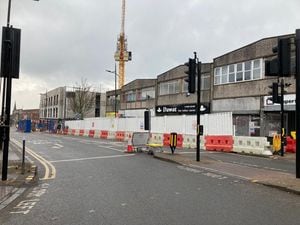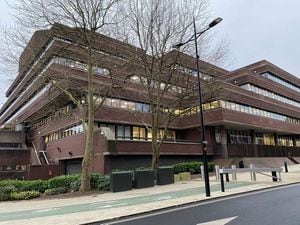Wendy Morton MP exclusive: Number 10 undermined my integrity on key fracking vote
They were some of the most chaotic scenes to take place in the Commons in decades.
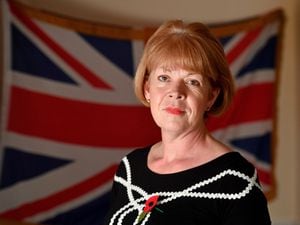
A crunch vote on fracking descended into mayhem for Liz Truss’s government amid wild scenes in the voting lobbies, as Tory MPs were allegedly manhandled and verbals were hurled back and forth between colleagues.
In the hours that followed the October 19 vote there were claims of bullying and intimidation, prompting Commons Speaker Lindsay Hoyle to launch an investigation.
Aldridge-Brownhills MP Wendy Morton, the then Chief Whip, was smack bang in the middle of the action.
Along with her deputy, Craig Whittaker, she resigned during the melee in the lobbies, only to agree to stay in post following a personal plea from a desperate Ms Truss.
Six days later Mrs Morton resigned for good, announcing in a short statement that she was “heading to the back benches” to represent her constituents.
Her role in the chaos has seen Mrs Morton heavily criticised – largely by unnamed MPs and Westminster sources quoted in national newspapers.
She has been cruelly ridiculed as “Wendy Moron” and accused of being so incapable of doing her job that attempts were made to draft in a senior MP to “babysit” her.
Certainly, the vote is widely viewed as the final straw for many Tory MPs regarding Ms Truss', who the following day would stand outside Number 10 and announce her resignation.
Today, for the first time since leaving the whips’ office, Mrs Morton tells her side of the story exclusively to the Express & Star.
Speaking at her office in Aldridge, Mrs Morton said: “A lot of stuff was put out there about me, that the Deputy Prime Minister had had to save me and that the Prime Minister said she hated me. It was reported that I was clueless.
“I’d like to think I was pretty competent. I haven’t got this far in life without a degree of competency so it often felt that the machinery of Number 10 were briefing against me. You take that with the rough and tumble, but I do expect certain standards in politics and I do expect a degree of integrity and decency.”
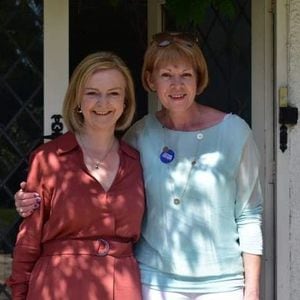
Mrs Morton says she was surprised when Ms Truss asked her to be Chief Whip – reportedly after others had turned the role down.
Although a close ally of Ms Truss with several years worth of ministerial experience – including as an assistant in the whips’ office – she had not asked for a Cabinet position and was happy to stay on as a minister.
It looked like a difficult task from the outset.
The Tory side of the Commons was filled with MPs who had backed Rishi Sunak for leader, and even many of Ms Truss’s supporters were first and foremost frustrated Boris Johnson fans.
Maintaining discipline in such a tense environment was never going to be easy – and it became nigh on impossible following the announcement of of the mini-budget and its aftermath.
Mrs Morton said: “I wanted to be back in the Foreign Office [where she served for nearly two years under Mr Johnson]. When the PM asked me to be Chief Whip I thought I might never get the chance again.
“I knew from the start it was going to be a tough gig. As a party we’d had a turbulent few months, with Boris going, the leadership election and then Liz winning the members’ ballot.
“It was always going to be a challenge and the big thing – as it still is today – was uniting the Conservative Party.
"I genuinely felt it was a real honour to do it, particularly as first first female in the Conservative Party to do it.
“But it always felt like there were lots of forces working away in the background.”
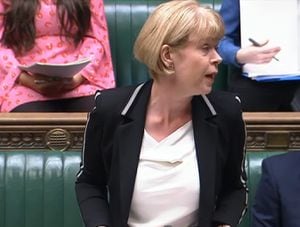
The morning of the fracking vote had been a manic one in the whips’ office. Mrs Morton said she had warned Downing Street the previous evening that the vote was a “must win” so as to stop Labour from gaining control of the order paper.
She had written to Tory MPs warning that the vote – which had been called by Labour in a deliberate move to test Tory loyalties – was being treated as a confidence measure. They had to back the Government or lose the whip.
“If we lost then no doubt my head would have been on the block,” she said.
But she says as the day progressed, and with Suella Braverman’s resignation as Home Secretary preoccupying Number 10, it started to become clear that the view in Downing Street was “slightly different”.
At the end of a debate lasting several hours Government minister Graham Stuart told the Commons: “Quite clearly this is not a confidence vote.”
The about face sparked instant confusion. Mrs Morton could be seen dashing across the Commons to the benches behind Mr Stuart, a look of panic etched across her face.
“At that point the integrity of the whip had been undermined,” she said.
Mrs Morton said she left the chamber “frustrated and angry” and messaged the PM telling her she’d resigned. But in a short meeting in the PM’s office Ms Truss persuaded her and Mr Whittaker to stay on.
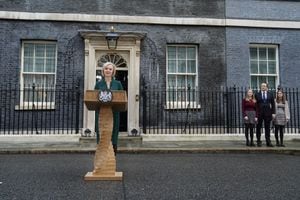
Addressing claims over poor behaviour in the voting lobbies, she said: “I cannot say hand on heart that I saw any bullying or intimidation. It was chaotic, but when you’re getting 650 people through the lobbies it can get that way.
“No one came to me and said they had been bullied.” Her view appears to have been backed up by Mr Hoyle’s probe, which last week found no evidence of bullying.
She added: “The reason the chaos ensued was because people were confused. They’d been whipped to do one thing and then given a different message from the dispatch box.
“To be Chief Whip you have to have integrity and you have to have the ability to remove the whip from somebody. The minute that is gone, you have no authority at all, which is why I stood up for the whips’ office.”
The Government won the vote 326-230, but it was not enough to save Ms Truss’s premiership, which by that stage was hanging by a thread.
“She faced a battle from the start and things had been difficult for a while before [the vote],” Mrs Morton said. “She had the death of the Queen, then the mini-budget. There were a lot of things that were going against her.”
Asked if her relationship with Ms Truss had now broken down, Mrs Morton said: “We still have a professional relationship but not with a huge amount of contact.”
Mrs Morton says she is now looking forward to getting “stuck in” to constituency work, and dealing with issues including green belt protection and Aldridge railway station.
However, she’s determined to defend her corner from her time as Chief Whip, and confirmed she has submitted a formal complaint to CCHQ regarding the conduct of Sir Gavin Williamson towards her.



